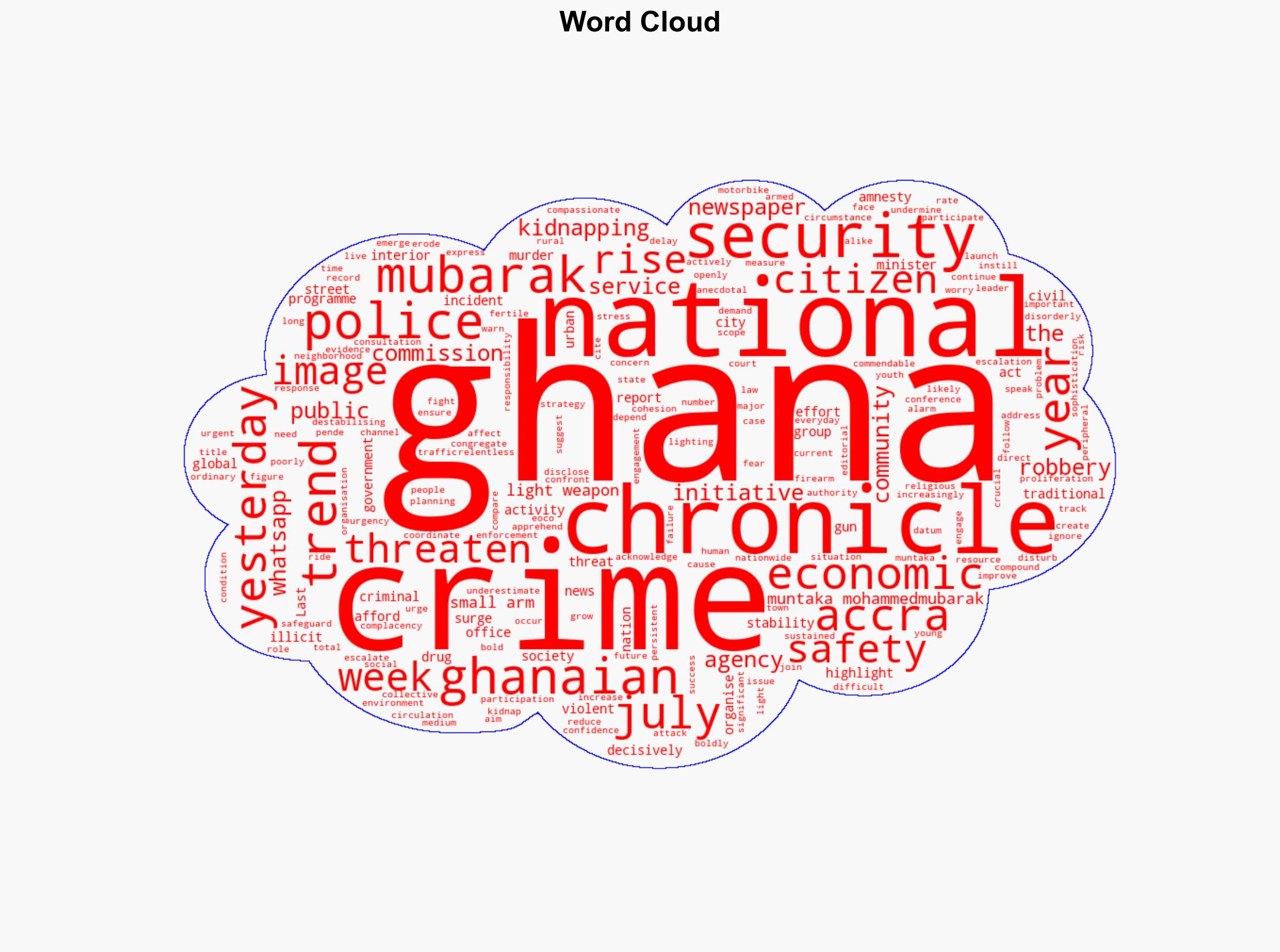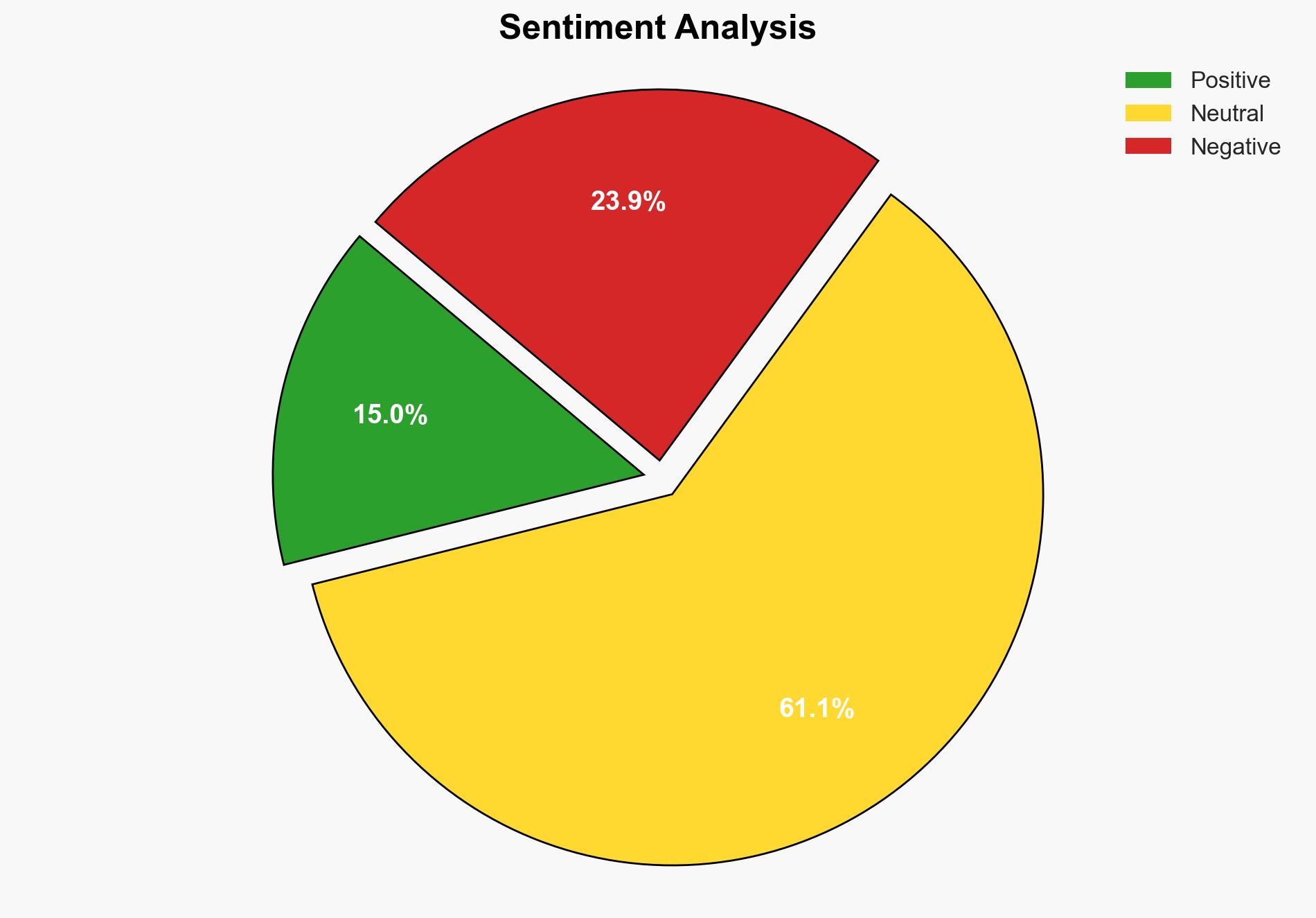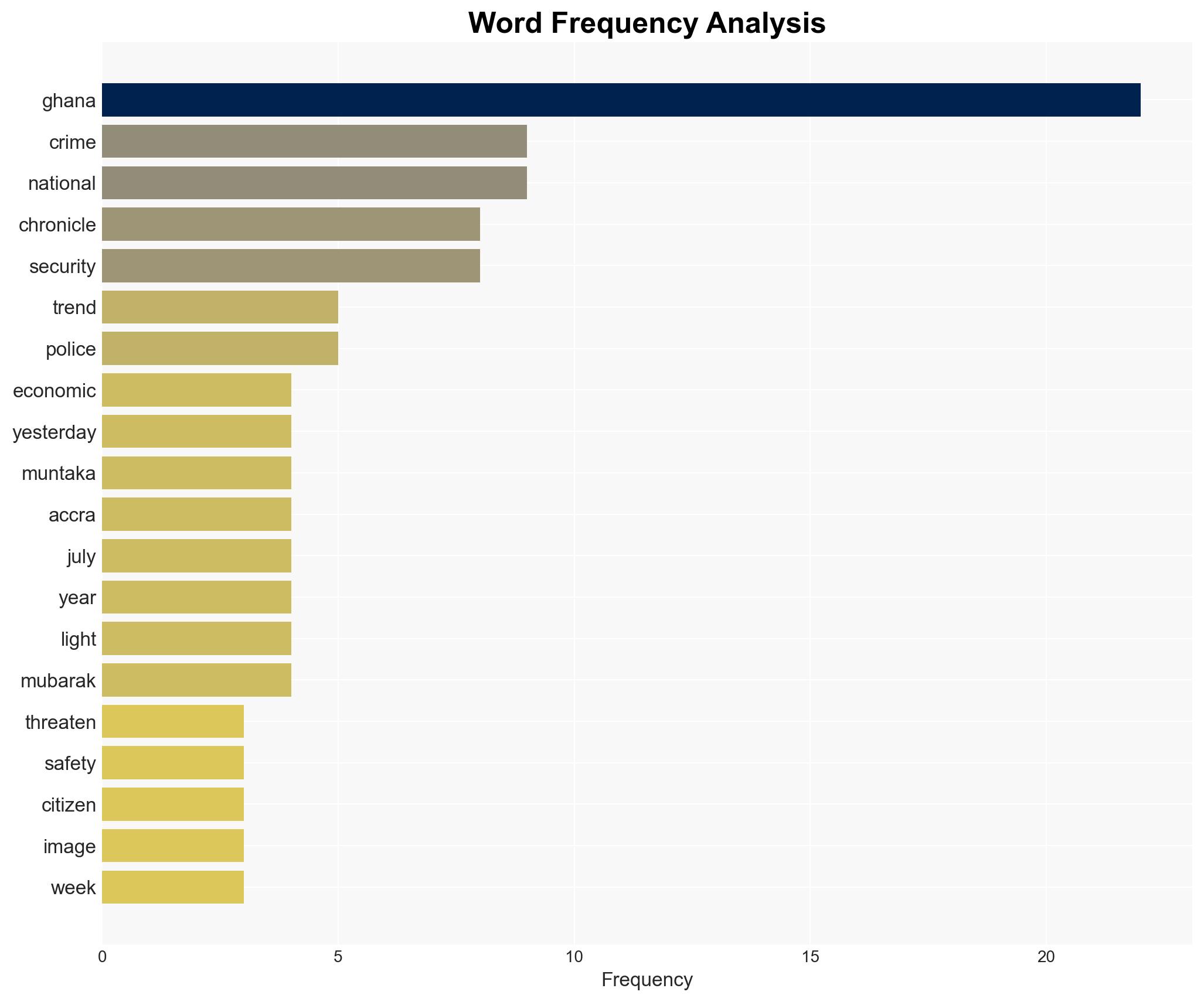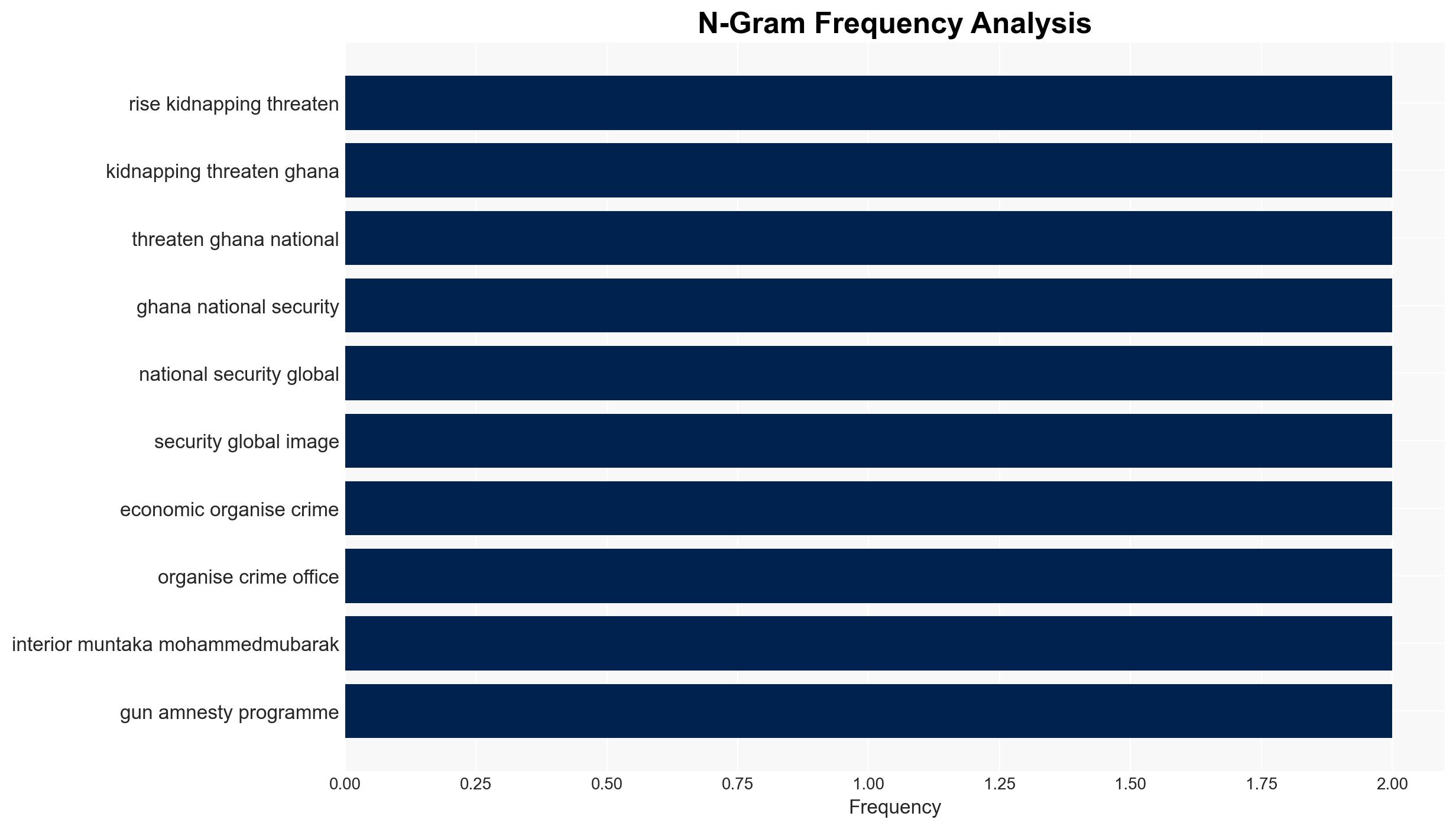Editorial Rising Crime in Ghana A Threat to National Security and Public Safety – Thechronicle.com.gh
Published on: 2025-11-19
AI-powered OSINT brief from verified open sources. Automated NLP signal extraction with human verification. See our Methodology and Why WorldWideWatchers.
Intelligence Report:
1. BLUF (Bottom Line Up Front)
There is a moderate confidence level that the surge in crime in Ghana, particularly kidnappings and violent robberies, poses a significant threat to national security and public safety. The most supported hypothesis is that the increase in crime is driven by socio-economic factors and inadequate law enforcement capacity. Strategic recommendations include enhancing law enforcement capabilities, improving socio-economic conditions, and fostering community engagement to mitigate the threat.
2. Competing Hypotheses
Hypothesis 1: The rise in crime is primarily driven by socio-economic factors, including unemployment and poverty, leading individuals to engage in criminal activities as a means of survival.
Hypothesis 2: The increase in crime is due to insufficient law enforcement resources and capabilities, allowing criminal activities to proliferate unchecked.
Hypothesis 1 is more likely given the broader context of economic challenges in Ghana, which can exacerbate crime rates. However, Hypothesis 2 cannot be dismissed as the lack of adequate policing and judicial resources may also contribute significantly to the problem.
3. Key Assumptions and Red Flags
Assumptions:
– The reported crime statistics accurately reflect the situation on the ground.
– Socio-economic conditions are a primary driver of crime.
Red Flags:
– Potential underreporting of crime due to lack of trust in law enforcement.
– Anecdotal evidence from social media may not be reliable.
Deception Indicators:
– Possible manipulation of crime statistics for political purposes.
4. Implications and Strategic Risks
The rise in crime could lead to increased public fear, eroding trust in government and law enforcement. This may result in political instability and reduced foreign investment. If unchecked, the situation could escalate into more organized crime networks, potentially involving international actors. The proliferation of illicit firearms and drugs could further destabilize the region.
5. Recommendations and Outlook
- Enhance law enforcement training and resources to improve crime response capabilities.
- Implement socio-economic programs aimed at reducing poverty and unemployment.
- Foster community policing initiatives to build trust and cooperation between citizens and law enforcement.
- Best Case: Crime rates decrease due to effective law enforcement and socio-economic improvements.
- Worst Case: Crime continues to rise, leading to significant national security threats and economic decline.
- Most Likely: Gradual improvement in crime rates with sustained government and community efforts.
6. Key Individuals and Entities
Muntaka Mohammed-Mubarak (Minister of Interior), Ghana Police Service, National Commission on Small Arms and Light Weapons.
7. Thematic Tags
Structured Analytic Techniques Applied
- Cognitive Bias Stress Test: Expose and correct potential biases in assessments through red-teaming and structured challenge.
- Bayesian Scenario Modeling: Use probabilistic forecasting for conflict trajectories or escalation likelihood.
- Network Influence Mapping: Map relationships between state and non-state actors for impact estimation.
Explore more:
National Security Threats Briefs ·
Daily Summary ·
Support us





